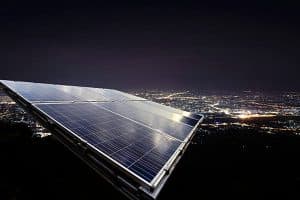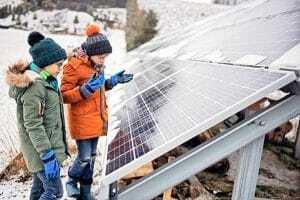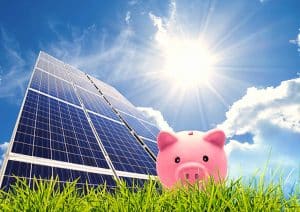Norway’s newly discovered phosphate rock deposit could help meet the world’s demand for electric vehicle (EV) batteries, solar panels, and fertilisers for the next 50 years.
The phosphate deposit in Rogaland, southwest Norway, contains an estimated 77.1 billion tons of phosphate rock. This is enough to produce enough lithium iron phosphate (LFP/LiFePO4) batteries for 1.5 billion EVs, enough solar panels for 1.2 trillion watts of solar energy, and enough fertiliser for 100 million tons of crops.
Energy Matters has been a leader in the renewable energy industry since 2005 and has helped over 40,000 Australian households in their journey to energy independence.
Let us discuss and choose the best quote that suits your needs and budget, and we can connect you with our trusted local installers, who will provide up to 3 FREE quotes for your home and business solar energy system.
Phosphate rock will increase by 50% by 2050
What is the future of phosphate rock?
Phosphate rock is a key ingredient in lithium iron phosphate batteries, which are a type of lithium-ion battery that is becoming increasingly popular for use in EVs. Lithium iron phosphate batteries are cheaper and more durable than other types of lithium-ion batteries, and they are also less likely to catch fire.
The demand for phosphate rock is expected to grow in the coming years as the global transition to electric vehicles and renewable energy accelerates. The International Fertilizer Industry Association (IFA) estimates that global demand for phosphate rock will increase by 50% by 2050.
The deposit is also located in a country with a strong mining and mineral processing track record. Norway has a well-developed infrastructure for mining and exporting minerals, and it is a member of the European Union, which provides a stable regulatory environment for mining companies.
The deposit also contains vanadium and titanium, both of which are recognised by the EU as important raw minerals. Vanadium is used to make liquid batteries, which are required by power companies.

Phosphate granules are used as a raw material in phosphorus fertilisers that are applied directly to the soil.
Benefits of the discovery
The discovery of the massive phosphate rock deposit in Norway has a number of potential benefits, including
Increased food security: Phosphate rock is a key ingredient in fertilisers, which are essential for food production. The discovery of this new deposit could help to increase food production and reduce food insecurity around the world.
Reduced reliance on imports: The EU currently imports around 90% of its phosphate rock, and the discovery in Norway could help to reduce this reliance on imports. This would make the EU more self-sufficient in terms of food production and reduce its vulnerability to supply disruptions.
Economic growth: The project is expected to create thousands of jobs in Norway, and it is also expected to boost the country’s economy. This would provide a much-needed boost to the Norwegian economy and help to create a more sustainable future for the country.

Norge Mining: Drilling in Bjerkreim, Norway
Phosphate from fertilisers to lithium iron phosphate batteries
Phosphate is a mineral that is essential for plant growth and animal nutrition. It is also a key component in the production of electric vehicle batteries. The demand for phosphate is increasing due to the growing world population and the increasing use of electric vehicles.
Lithium iron phosphate batteries are lithium-ion batteries that use phosphate as the cathode material. They are becoming more popular in EVs because they are less expensive and safer than other types of lithium-ion batteries.
Attention, automobile enthusiasts! Are you prepared to embark on an electrifying journey with your next car? Brace yourself for a groundbreaking opportunity that will revolutionise your driving experience. Don’t miss out on this exclusive chance to book a test drive in one of the latest and most cutting-edge electric vehicles (EVs) available right in your very own neighbourhood!
So, what are you waiting for? Seize this moment to revolutionise your driving experience. Be a trendsetter, an innovator, and a protector of our planet. Book your test drive today and prepare to join the growing community of electric vehicle enthusiasts. The road to a sustainable and electrifying future awaits – don’t miss your chance to be part of it!

Where is phosphate found in the world?
World’s mined phosphate rock
Those interested in the phosphate-mining industry should keep an eye on phosphate production and mining businesses. The top phosphate-producing countries in metric tons (MT) 2022 are listed below.
| 6. SAUDI ARABIA – Mine production: 9 million |
2. MOROCCO – Mine production: 40 million | 7. BRAZIL – Mine production: 5.5 million |
3. UNITED STATES – Mine production: 21 million | 8. EGYPT – Mine production: 5 million |
4. RUSSIA – Mine production: 13 million | 9. VIETNAM – Mine production: 4.5 million |
5. JORDAN – Mine production: 10 million | 10. PERU – Mine production: 4.2 million |
Challenges and opportunities
The discovery of the Norwegian deposit is a major step forward, but some challenges still need to be addressed. One challenge is the cost of mining and processing phosphate rock. The Norwegian deposit is located in a remote area, and the cost of transporting the phosphate rock to the market could be high.
Another challenge is the environmental impact of mining and processing phosphate rock. The mining process can pollute water and air, and phosphate rock processing can produce greenhouse gases. These environmental impacts will need to be carefully considered before the Norwegian deposit can be fully exploited.
“This is part of the reason why there is no more production of this critical raw material in Europe; there was some production in the Netherlands many years ago, but they stopped it because of the heavy pollution,” Norge Mining founder Michael Wurmser told Euractiv.
However, Wurmser believes that by utilising carbon capture and storage technology, Norway will be able to adhere to stronger environmental regulations while extracting and processing those minerals than Asian competitors presently do.
“The phosphorus from China, Vietnam or Kazakhstan doesn’t make a solar panel necessarily a green product. So that underlines our concept that sustainability begins in the ground, when you dig stuff out,” he explains.
Despite these challenges, the discovery of the Norwegian deposit is a major opportunity for the global transition to a clean energy future. The deposit provides a secure source of supply for the growing demand for LFP batteries, solar panels, and fertilisers. This will help to reduce the cost of these technologies and make them more accessible to consumers around the world.
Great news: Newly discovered phosphate bringing us closer to a sustainable future
The massive newly discovered phosphate in Norway represents a game-changing opportunity for the electric vehicle and solar panel industry. By providing a sustainable and domestic source of this crucial resource, Norway has the potential to revolutionise production and propel the transition to greener transportation and PV system.
However, it is crucial to prioritise environmentally responsible practices throughout the mining process to mitigate any potential negative impacts. With proper planning and implementation, this discovery could fuel the growth of the EV batteries and solar panel industry, fostering economic development, reducing carbon emissions, and bringing us closer to a sustainable and electrified future.
Source&Images: Norge Mining, Euractiv, Investing News Network
Still can’t afford to switch to solar power?
Are you considering getting solar panels but are currently short on funds? You can still invest wisely, and Energy Matters can help you.
Powow and Energy Matters have teamed up to provide consumers with an alternative to switching to solar power and battery storage.
The biggest obstacle to installing solar and battery storage is typically finance. With Powow’s PPA and VPP, our customers will have a $0 upfront option and financial stability in the uncertain energy market.
Get up to 3 obligation-free quotes by getting in touch with us right away. Find out what payment plan options suit your needs and budget!
Check out our page for Powow: Power Purchase Agreement (PPA) and Virtual Power Plant (VPP).










































